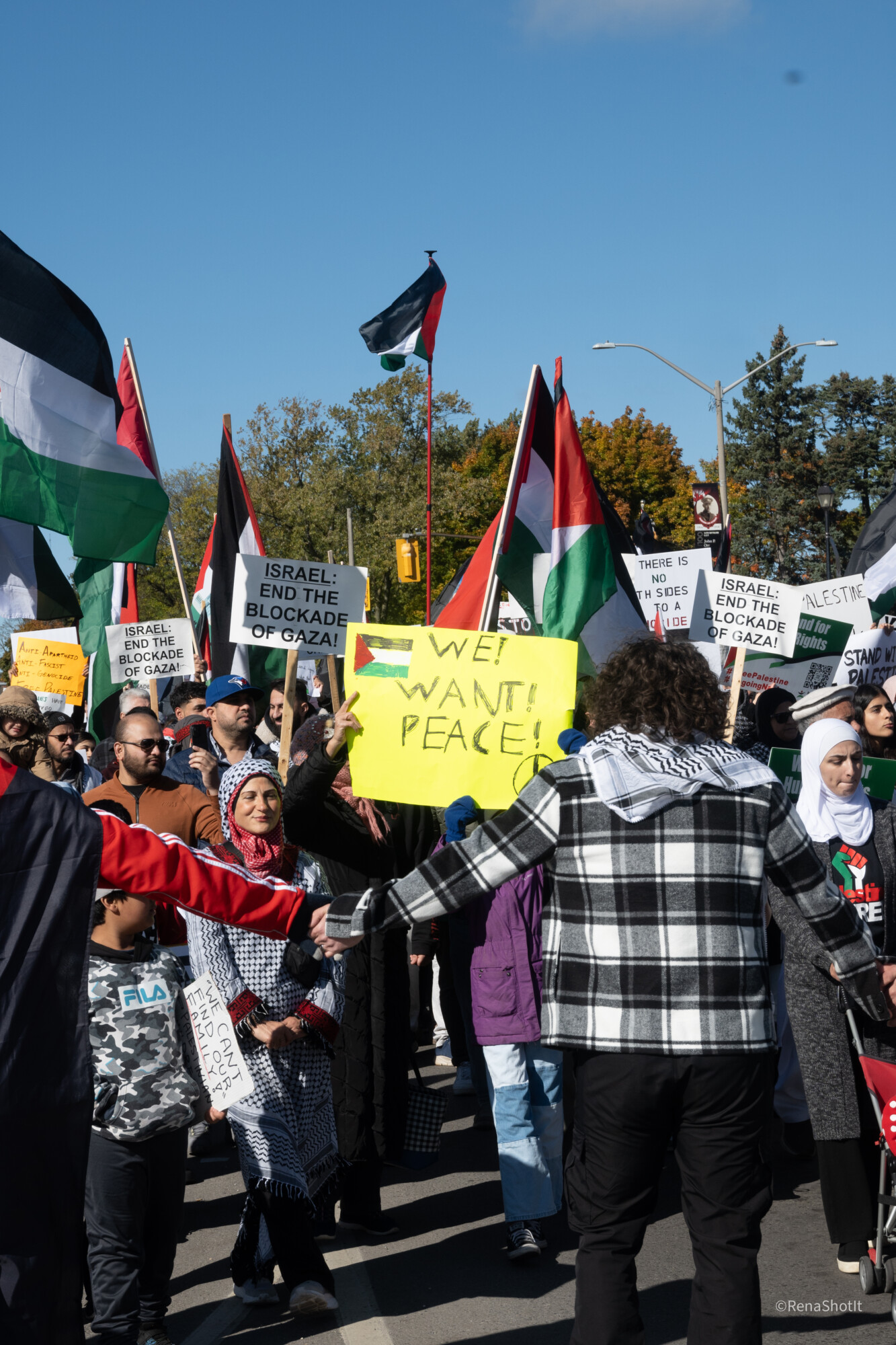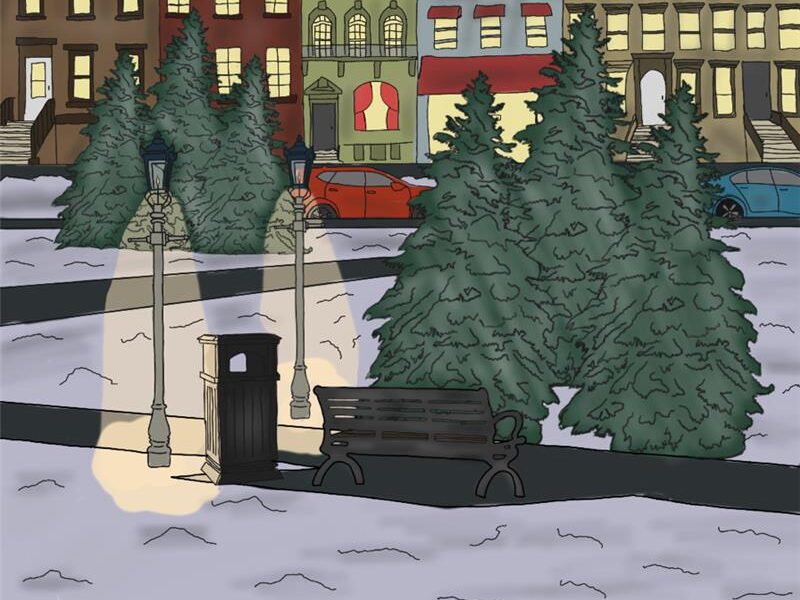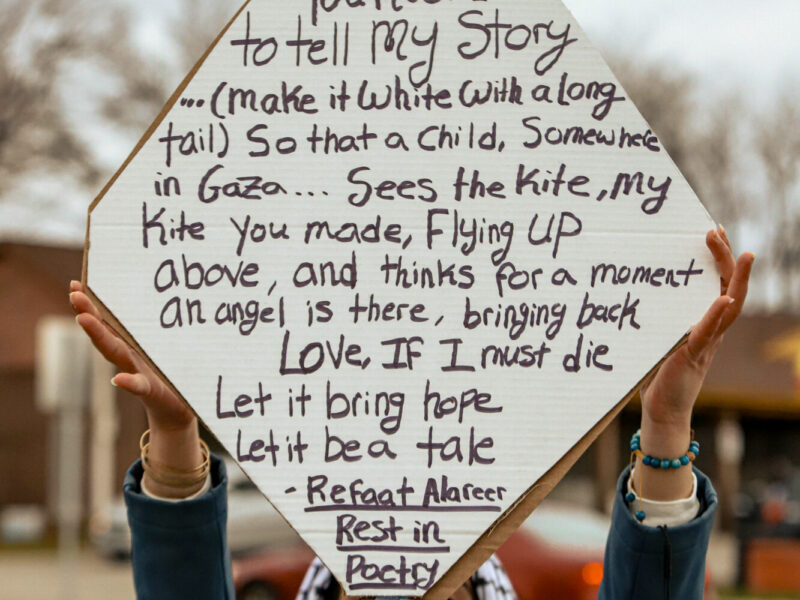Niyati Pancholi / Sputnik Photography
A protest for Gaza in Brantford
People have always cursed and complained about bias in the media. Especially recently, Western newspapers are constantly under fire for racist reporting on any issue involving people of colour. Over these past few months, I’ve started to realize just how much of this bias is true and to what extent one-sided media coverage is a reality in newsrooms today.
In January, the public found out that CNN has had a policy for years where journalists reporting on Israel and Palestine must run their content by the newspaper’s Jerusalem bureau before publication. Although the policy is in place to ensure accuracy, the bureau falls under the Israel Defense Forces’ censorship rule that stops articles “unfit or unsafe” to print. To obtain a press pass in Israel, foreign journalists must sign a document and agree to conform to the censorship’s rules. CNN also started regulating the type of language staff can and can’t use when reporting on the violence in the Gaza Strip.
In Canada, retired Humber College professor Jeff Winch filed four complaints to CBC last year about the platform’s coverage on Gaza. He said he noticed CBC reporters use terms like “murderous,” “vicious,” “brutal,” “massacre” and “slaughter” solely to describe the Hamas attack.
By December, CBC’s senior manager of journalistic standards Nancy Waugh responded to the professor. She said the way Israel and Hamas kill civilians varies in proximity and thus, warrants different reporting. For example, Hamas fights “hand-to-hand” with civilians while Israel drops bombs on them from kilometres away. Winch said this was a terrible answer and he doesn’t think the “language should have to do with the comfort of the person delivering death.”
In November, eight U.K.-based BBC journalists anonymously wrote a letter to Al Jazeera that said the British newsroom holds a double standard when it comes to how certain civilians are seen. They said terms like “massacre” and “atrocity” are only used to describe Hamas’ actions responsible for the Oct. 7 attack in Israel, even though the Israel Defense Forces have killed a rising toll of 26,751 people in Gaza. The letter said the attack that killed around 1,200 Israelis does not justify the “indiscriminate” killing of Palestinians and the BBC “cannot fail to interrogate” that logic. It also pointed out that Israeli civilians’ suffering is reported with empathy through funeral coverage and naming victims, whereas there has been “little attempt” to use the available resources and report on Palestinian civilians’ experiences.
A few weeks prior, more than 1,500 journalists across the U.S. signed an open letter calling on American newsrooms to report objectively on “Israel’s repeated atrocities against Palestinians” and to “tell the full truth without fear or favor.” According to the letter, this includes not undermining Arab, Palestinian and Muslim voices while perpetuating Islamophobic, racist and dehumanizing rhetoric, as well as not spreading any misinformation. The letter also calls for journalists to use terms such as “apartheid,” “ethnic cleansing” and “genocide” to describe the situation in Gaza, as cautiously using lighter language “to hide evidence of war crimes or Israel’s oppression of Palestinians is journalistic malpractice.”
From conversations with fellow journalists at university, it seems like we all collectively acknowledge the drained fight for objectivity in the news. Word choice matters — very much. We must focus on elevating and humanizing Palestinian voices, reminding readers that Palestinian lives are as valuable as their own. However, we still find ourselves indirectly referring to the horrors in Gaza as the “elephant in the room.” We censor ourselves with watermelon emojis online and indirectly refer to the violence abroad during class discussions and meetings without naming any specific states — and I can only wonder why.




